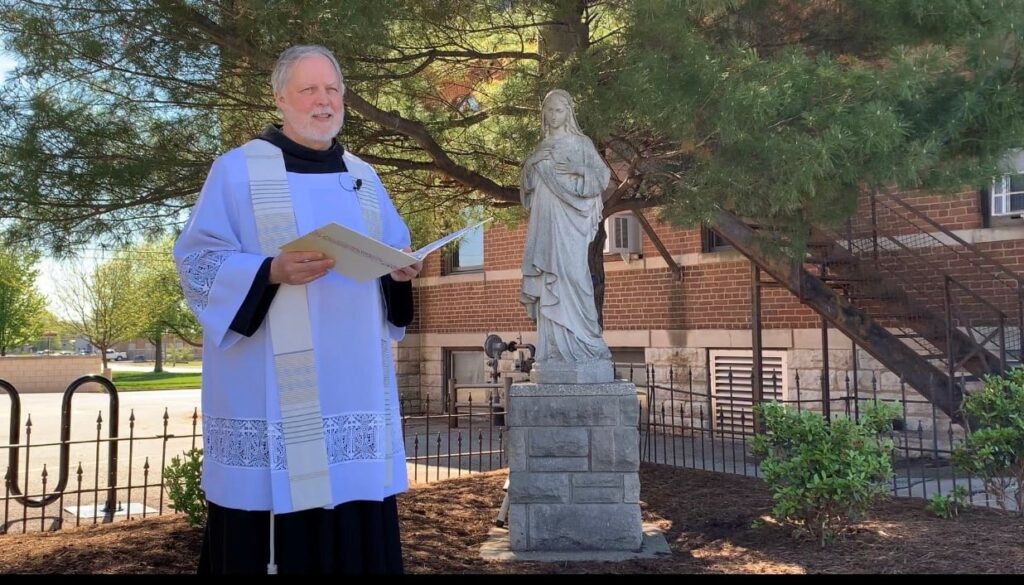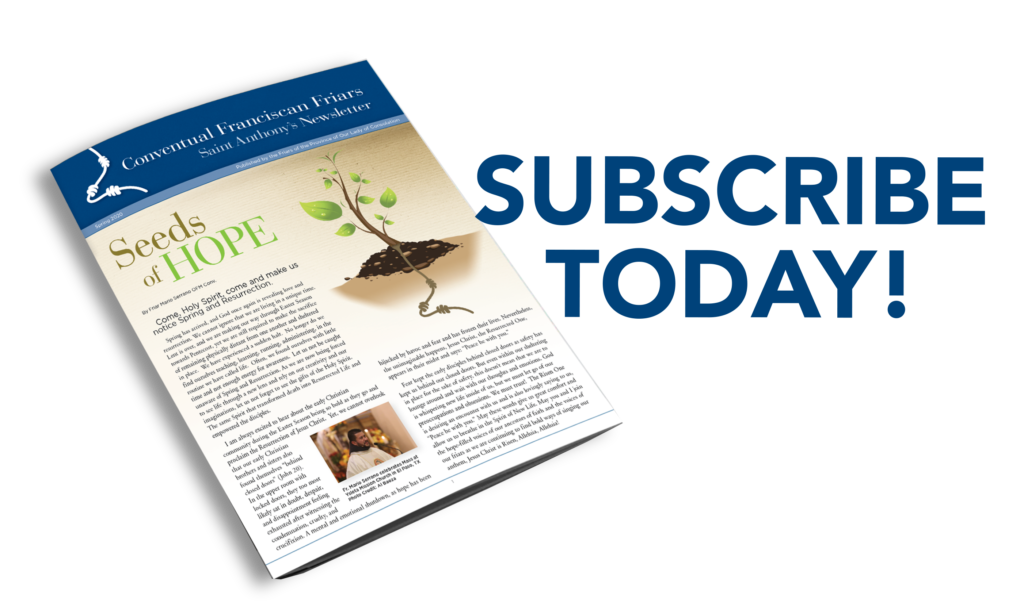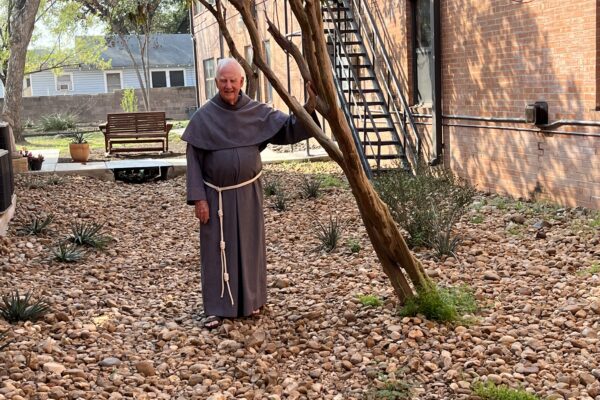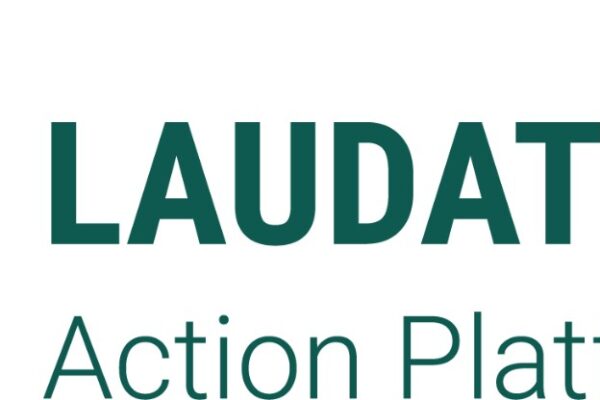
Editor’s Note: During the seasons of Advent-Christmas or Lent-Easter, our Minister Provincial and sometimes our Minister General, will write a letter to the friars to ponder the grace of the upcoming liturgical season from a particular perspective. For Lent 2023, friar Martin Day, the Minister Provincial of the Province of Our Lady of Consolation, has written an exhortation to the friars in which he asks them to reflect more deeply on the call to Franciscan poverty, especially in light of Pope Francis’ encyclicals, Laudate Si’ and Fratelli Tutti. We hope that by sharing friar Martin’s exhortation to the friars, our friends and supporters may gain insight into how the friars act on their vow of poverty in light of their current locales and ministries. We ask that our readers pray for our friars as they grapple with the call to “ecological conversion” that has to form and inform any consideration of what constitutes “poverty in the Franciscan tradition.”
“I recently came across an account of the founding of the Franciscan Friars of the Atonement (Graymoor Franciscans). In that telling of the story, Fr. Paul Wattson, an Episcopal priest working in Kingston, NY, had received a letter from Sr. Lurana White, a nun in an Episcopal religious community in England. She was seeking advice about finding an Episcopal order committed to poverty in the Franciscan tradition. Not finding one, together they worked to found an Episcopalian community in the Franciscan tradition which eventually converted, all together, to Catholicism. What stopped me short in the account was Sr. Lurana’s interest in finding a community that practiced “poverty in the Franciscan tradition.” She wasn’t looking for any ol’ poverty, but poverty in the Franciscan tradition. And at the time, she wasn’t even Catholic! The first question that was raised for me was, “What is ‘poverty in the Franciscan tradition’?” She seemed to have something very definite in mind. I wonder what it was.
As friars “in the Franciscan tradition” we probably have some working definition of what constitutes poverty in our tradition, and I think Lent is a most opportune moment to make a reflection on that reality as we practice our Lenten disciplines. In the title of this message, I put “exhortation” in quotations, because I have so little room to talk. I see so many areas where my practice of the vow of poverty is so meager as to not warrant any notice from those around me. And there are some elements of a life characterized by poverty that are absent from my life altogether. But here I am, in a position to offer encouragement even from a position of personal weakness.
We live in a time when we are being given a great deal of assistance from Pope Francis about identifying the primary features of the Franciscan charism. He is on board with us in recognizing the importance of the witness of St. Francis in addressing the important issues of our day. And those primary features are at play particularly in the two encyclicals carrying titles taken from the works of St. Francis himself, Laudato Si’ and Fratelli Tutti. In Laudato Si’ Pope Francis addresses the burden carried by the poor in confronting the changes in the environment that make previously fertile areas of the world less productive if they produce anything at all. Some lands which have provided a living in the past, for example, will soon simply be under water as sea levels rise. Others receive such differing amounts of rainfall than has been the case over millennia, that they cannot adapt to the disparity.
Pope Francis recognizes that the best of technological change alone will not solve the problem. A change in lifestyle will be required, and that becomes a particular challenge for us who have grown accustomed to enjoying a high standard of living. We might be tempted to assume simply that breakthroughs in technology will take care of everything. A closer look at the effect of technology on the environment and society will give the lie to that theory. It is a mathematical certainty, for example, that it is impossible to promise the developing nations that they will one day reach a standard of living we in the U.S. enjoy already. To get everyone to that standard of living, we would need five earths worth of material resources. There are not enough resources in the physical planet Earth to provide for that level of consumption. And that is true with or without the added urgency of climate change.
I believe that Pope Francis is exhorting us friars to accept that the “ecological conversion” he refers to has to inform any consideration of what constitutes “poverty in the Franciscan tradition.” By virtue of our vocation to evangelical poverty, it seems, we would have to incorporate in our daily living the “reduce” and “reuse” Rs from the three Rs of green living (Reduce, Reuse, Recycle) if we want to live out our vocation authentically. It seems to me that, by and large, we have committed to the recycle side of the triangle, but the other two sides can go wanting. In my case, I am too quick to conclude that it would be easier to simply throw something away and buy new rather than get the item fixed. How inclined are we to dream of getting the latest phone or computer even if the current one is still serviceable? In my case, I find myself spending a lot of time dreaming about my next car, even though the one I drive now is still in good shape, even with its 100,000 miles. Even if I haven’t shown up at the dealership, I feel that, somehow, even spending time fantasizing about it goes against poverty in the Franciscan tradition.
During this Lenten season, if I am going to take this reflection seriously, I would also have to look at how much I possess versus how much I really need. Not only do my sins against poverty result in the burden of having more than I know what to do with, but they have also contributed to a carbon footprint larger than most of the people on the earth—even the manufacture of goods and services add to the sustainability deficit—so I stick it all somewhere out of sight with the promise that I will find a good home for it, resisting the acknowledgment that I am still adding to my pile of goods on a regular basis.
As friars living under the sphere of the evangelical counsels, we are well versed in considering conversion of life as a fitting reflection topic for Lent. And in our day, thanks to the work of the Pope and others who help us appreciate the witness and charism of our founder, we have a challenge to take up. For Sr. Lurana White, poverty in the Franciscan tradition was something quite distinct, and worth pursuing. We cannot ask her what she meant by the term, but we can take that conviction as a starting point for our own Lenten reflection. If poverty in the Franciscan tradition is something distinct, what distinguishes it? Will our definition pass muster with others whose access to the charism is different than ours but no less earnest in following Francis’ lead? And can we recommit our efforts to bring our thoughts about this vow we’ve taken and our behavior around it into closer proximity?
As a final thought, Pope Francis is consistently reminding us of the needs of the people in Turkey and Syria, and others who have suffered recently from earthquakes and other natural disasters. Perhaps that could be the focus of our Lenten almsgiving this year.
In the humility that is part and parcel to poverty in the Franciscan tradition I wish you all a productive and meaningful Lent, and the blessings of new life at Easter.
Friar Martin





